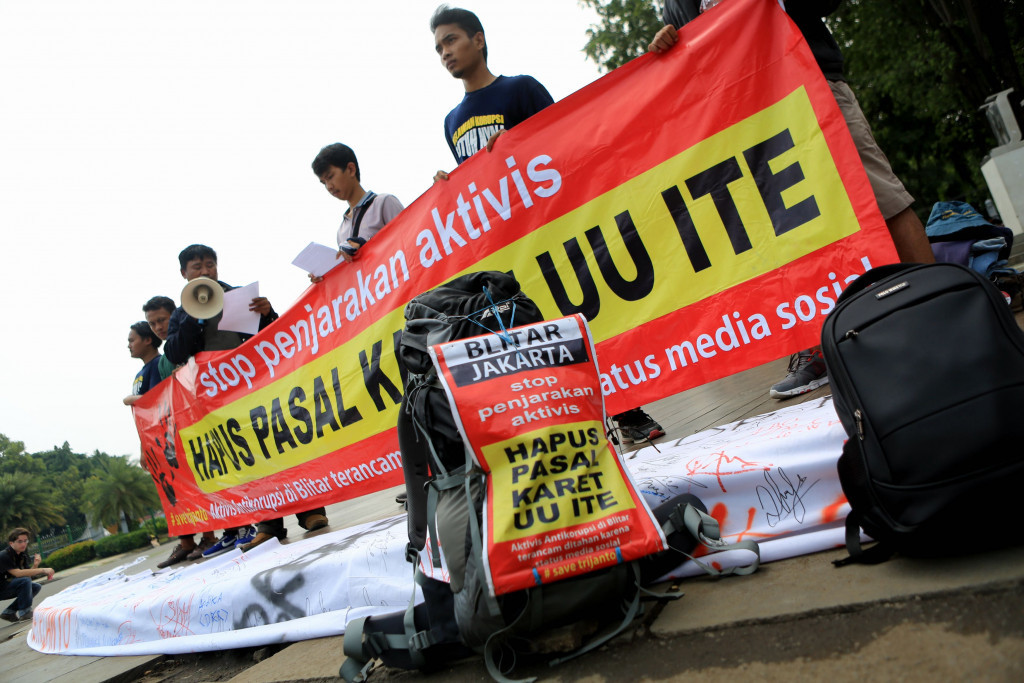Popular Reads
Top Results
Can't find what you're looking for?
View all search resultsPopular Reads
Top Results
Can't find what you're looking for?
View all search resultsVictims of ITE Law
What we’ve heard, over the years, are countless reports of people being jailed for criticizing others on social media.
Change text size
Gift Premium Articles
to Anyone
F
or more than a decade now the government has enforced the 2008 Electronic Information and Transactions (ITE) Law, also known as the cyber law. Children who were born in the year when the law came into force have become teenagers now, and are probably already deeply engaged in social media, where many have fallen prey not only to cybercrime but also to the legislation itself.
But after 13 years, we have heard nothing good resulting from the law's implementation. The law was amended in 2016, only to give the government more power to control people’s access to the internet.
Cybercrime has continued to happen, and amid the pandemic, with more people turning to online financial transactions and shopping, such crimes have only increased. Data theft has been rampant, making the internet an unsafe place to transact and access information.
What we’ve heard, over the years, are countless reports of people being jailed for criticizing others on social media or for taping and reporting their supervisors who had constantly sexually harassed them through unwanted phone conversations.
One of the latest victims is Saiful Mahdi, a lecturer of Syiah Kuala University in Banda Aceh, the capital of Aceh. He was sentenced to three months in prison for broadcasting his contempt about an unfair civil servant recruitment process at the state university on a WhatsApp chat group.
When President Joko “Jokowi” Widodo granted him amnesty and he was released from Banda Aceh Penitentiary on Wednesday, he had served half of his sentence. While offering amnesty shows good intention, there was no need to prosecute Saiful in the first place.
We definitely cannot cheer Jokowi's pardon that prevented Saiful from serving his full sentence because, like many others jailed by the ITE Law, he did not deserve the punishment at all. Why would the government care so much about regulating what people say online when they cannot arrest criminals that have committed cyberattacks and stolen people’s money on the internet?
The Southeast Asia Freedom of Expression Network (SAFEnet) recorded that between 2016 and 2020 there were 786 violations of the law, reported to the police, mostly concerning defamation, with 88 percent of offenders ending up behind bars.
We do need a stronger cyber law, but not one that criminalizes people for grumbling or complaining about poor healthcare services or unfair systems around them. Rather than being punished under the cyber law, these people deserve credit for their courage to speak up against injustice and unfair treatment.
Worse, by threatening to jail them, instead of protecting them, the government has created a culture of fear, a diffident society that discourages critical thinking, hence creative thoughts and innovation.
Thanks to the ITE Law, Indonesia has put civil liberties at stake, which is why a revision of the law is now more urgent than ever.
Saiful may have regained his freedom now. But he, and many others, may think twice about posting his thoughts on messaging groups or other social media platforms. Even if he finds corruption or other crimes in front of his eyes.









